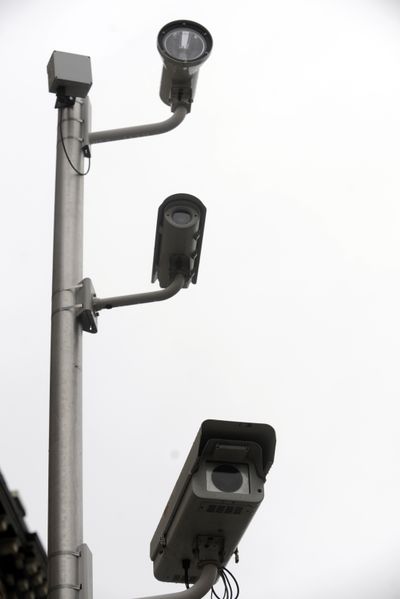Ticket-signing system jeopardizes Photo Red

A judge on Friday ruled against the city of Spokane in a decision that may invalidate the system by which traffic tickets are generated using controversial Photo Red cameras.
The decision by Superior Court Judge Jerome Leveque overturns a previous Municipal Court ruling that found no legal problem with the method used to electronically affix a Spokane police officer’s signature to a ticket in Arizona before mailing the $124 citation to the car’s registered owner.
“This ruling basically invalidates the whole system as of (Friday),” said attorney Dean Chuang, who took over the case for the late John Clark, who initially challenged the red-light camera system.
Because city officials had not yet reviewed the ruling Friday, they declined to comment, except to say they will meet Monday to discuss the issue.
But last month, Mayor Mary Verner proposed using $400,000 generated by Photo Red cameras in a larger financial package to hire six police officers.
The city receives about $500,000 a year from 11 cameras that record drivers who run red lights or don’t come to a complete stop before turning. The city has plans to install four more cameras this year, and Verner’s proposal estimated that it would boost the city’s take to $750,000 next year.
But the ruling Friday could change all that, Chuang said.
The system requires that a police officer review images from the cameras, then decide whether an infraction has occurred. If so, the officer punches an “accept” button, sending an electronic signal to Arizona-based American Traffic Solutions. That company then affixes the officer’s signature to the ticket before mailing it to the driver.
Clark, and later Chuang, argued that state law requires that any signature signed under penalty of perjury must be written in Washington.
In 2010, Assistant City Prosecutor Janean Phillips told Municipal Court Judge Mary Logan that the company uses a secure network and password that can be accessed only by the officer reviewing the tickets.
“It’s not a big mystery. The purpose is to facilitate the efficient issuance of these infractions,” Phillips said at the time.
However, Leveque agreed with Chuang and overturned Logan’s ruling. Chuang said he believes the system is now invalid unless the city can change how the tickets are signed.